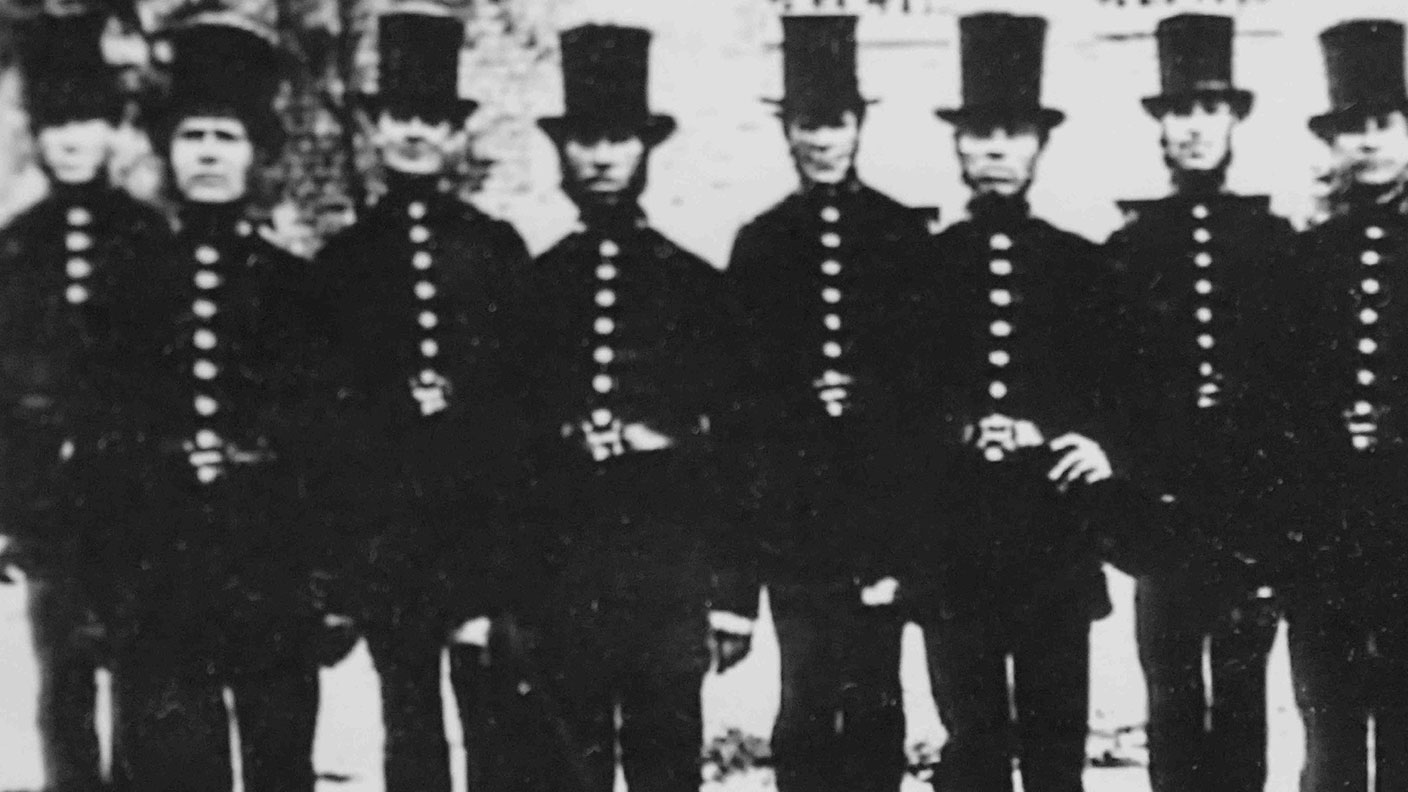
Get the latest financial news, insights and expert analysis from our award-winning MoneyWeek team, to help you understand what really matters when it comes to your finances.
You are now subscribed
Your newsletter sign-up was successful
Want to add more newsletters?

Twice daily
MoneyWeek
Get the latest financial news, insights and expert analysis from our award-winning MoneyWeek team, to help you understand what really matters when it comes to your finances.

Four times a week
Look After My Bills
Sign up to our free money-saving newsletter, filled with the latest news and expert advice to help you find the best tips and deals for managing your bills. Start saving today!
Nineteenth-century London was a grubby and lawless place, full of drunkards, thieves, house-breakers and other ne'er do wells. What law enforcement that did exist was piecemeal, and not under any central control.
There were random parish constables and watchmen keeping an eye on things – the Bow Street Runners, which had been put together by the novelist Henry Fielding in the mid-18th century, and the Marine Police Force – the river police established in 1798 to combat crime in the docks. But there was very little organised city-wide crime-fighting going on.
But London was expanding. People were growing rich, and crime was on the rise. The Home Secretary, Sir Robert Peel, wanted things organised properly. And so he drew up "An Act for improving the Police in and near the Metropolis".
MoneyWeek
Subscribe to MoneyWeek today and get your first six magazine issues absolutely FREE

Sign up to Money Morning
Don't miss the latest investment and personal finances news, market analysis, plus money-saving tips with our free twice-daily newsletter
Don't miss the latest investment and personal finances news, market analysis, plus money-saving tips with our free twice-daily newsletter
Peel's force would be a civilian outfit, with a blue tailcoat and top hat. Officers had to be aged between 20 and 27, be at least 5'7" tall, be able to read and write, and be of good character.
The force was based in 4 Whitehall Place, and would operate within a seven-mile radius of Charing Cross (excluding the City of London).The back entrance was in Great Scotland Yard, soon shortened to Scotland Yard.
It consisted of 895 constables, 88 sergeants, 20 inspectors and eight superintendents. Standard equipment was a truncheon, handcuffs and a rattle to raise the alarm.
They worked seven days a week for £1 a week, with five days holiday a year – the low pay was supposed to ensure that the men would not feel “superior to the job”. They were required to wear their uniforms at all times, even when they were off duty.
The Act was passed in July 1829, and on 29 September, the first “Peelers” took to the streets, pounding their beats at 2.5 miles an hour.
Get the latest financial news, insights and expert analysis from our award-winning MoneyWeek team, to help you understand what really matters when it comes to your finances.

-
 Can mining stocks deliver golden gains?
Can mining stocks deliver golden gains?With gold and silver prices having outperformed the stock markets last year, mining stocks can be an effective, if volatile, means of gaining exposure
-
 8 ways the ‘sandwich generation’ can protect wealth
8 ways the ‘sandwich generation’ can protect wealthPeople squeezed between caring for ageing parents and adult children or younger grandchildren – known as the ‘sandwich generation’ – are at risk of neglecting their own financial planning. Here’s how to protect yourself and your loved ones’ wealth.
-
 31 August 1957: the Federation of Malaya declares independence from the UK
31 August 1957: the Federation of Malaya declares independence from the UKFeatures On this day in 1957, after ten years of preparation, the Federation of Malaya became an independent nation.
-
 13 April 1960: the first satellite navigation system is launched
13 April 1960: the first satellite navigation system is launchedFeatures On this day in 1960, Nasa sent the Transit 1B satellite into orbit to provide positioning for the US Navy’s fleet of Polaris ballistic missile submarines.
-
 9 April 1838: National Gallery opens in Trafalgar Square
9 April 1838: National Gallery opens in Trafalgar SquareFeatures On this day in 1838, William Wilkins’ new National Gallery building in Trafalgar Square opened to the public.
-
3 March 1962: British Antarctic Territory is created
Features On this day in 1962, Britain formed the British Antarctic Territory administered from the Falkland Islands.
-
10 March 2000: the dotcom bubble peaks
Features Tech mania fanned by the dawning of the internet age inflated the dotcom bubble to maximum extent, on this day in 2000.
-
9 March 1776: Adam Smith publishes 'The Wealth of Nations'
Features On this day in 1776, Adam Smith, the “father of modern economics”, published his hugely influential book The Wealth of Nations.
-
 8 March 1817: the New York Stock Exchange is formed
8 March 1817: the New York Stock Exchange is formedFeatures On this day in 1817, a group of brokers moved out of a New York coffee house to form what would become the biggest stock exchange in the world.
-
7 March 1969: Queen Elizabeth II officially opens the Victoria Line
Features On this day in 1969, Queen Elizabeth II took only her second trip on the tube to officially open the underground’s newest line – the Victoria Line.
